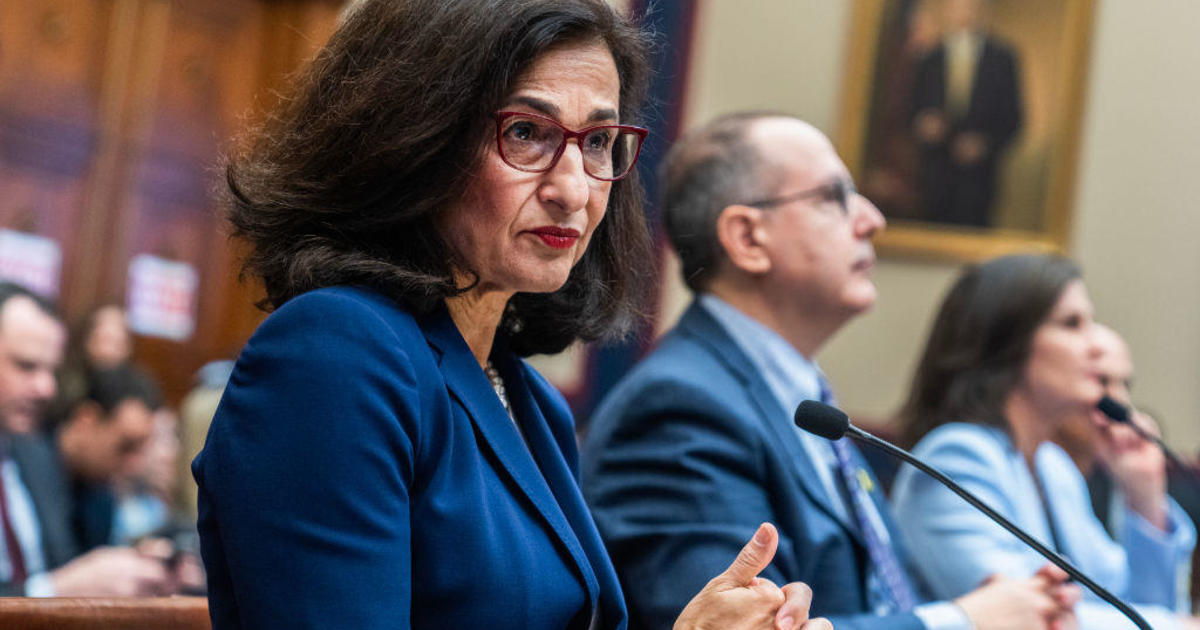Stocks sink to new low for 2022, closing dismal month with mounting recession fears
Wall Street is at its worst levels in almost two years Friday as the end nears for what's been a miserable month for markets around the world.
The S&P 500 closed down 1.5%, at 3,585, after flipping between small losses and gains through the morning. It's at its lowest level since the early 2020 coronavirus crash and its third straight losing quarter.
The Dow Jones Industrial Average closed down 500 points, or 1.7%, and the Nasdaq composite was down 1.5%.
Global inflation
The main reason for this year's struggles for financial markets has been fear of a possible recession, as interest rates soar in hopes of beating down the highest inflation in 30 years.
The Federal Reserve has been at the forefront of the global campaign to slow economic growth and hurt job markets just enough to undercut inflation but not so much that it causes a recession. More data arrived Friday to suggest the Fed will keep its foot firmly on the brakes of the economy, raising the risk it will bring on a downturn.
The Fed's preferred measure of inflation showed it was worse last month than economists expected. That should keep the Fed on track to keep raising rates and hold them at high levels for some time, as it's loudly and repeatedly promised to do.
Vice Chair Lael Brainard was the latest Fed official on Friday to insist the central bank won't pull back on rates prematurely, dashing Wall Street's hopes for a "pivot" toward easier rates as the economy slows.
"The Fed isn't about to 'pivot' and there is more monetary tightening to come (both domestically and internationally)," said analyst Adam Crisafulli of Vital Knowledge in a research note.
Crisafulli argued the Fed's aggressive moves are working, and that prices are about to stabilize. "The disinflationary pressures already evident throughout the economy are growing more powerful," Crisafulli said. "Housing, rents, shipping, commodities, apparel, autos, etc. – all these categories ... are now witnessing intense disinflation (or outright deflation).
Other analysts have a less positive outlook.
"At this point, it's not a matter of if we'll have a recession, but what type of recession it will be," said Sean Sun, portfolio manager at Thornburg Investment Management.
Double-whammy on stocks
With the exception of financial companies such as banks, brokerages or mortgage companies, higher interest rates generally knock down stock prices. The other market lever that also looks to be under threat is earnings, as the slowing economy, high interest rates and other factors weigh on record-high corporate profits.
Cruise ship operator Carnival dropped 21% for one of Wall Street's worst losses after it reported a bigger loss for its latest quarter than analysts expected and revenue that fell short of expectations.
Nike slumped 12.1% in what could be its worst day in two decades after it said its profitability weakened during the summer because of discounts needed to clear suddenly overstuffed warehouses. The amount of shoes and gear in Nike's inventories swelled by 44% from a year earlier.
The U.S. dollar's powerful surge against other currencies also hurt Nike. Its worldwide revenue rose only 4%, instead of the 10% it would have if currency values had remained the same.
Glimmers of hope
Nike isn't the only company to see its inventories balloon. So have several big-name retailers — but such bad news for businesses could actually mean some relief for shoppers if overstocks lead to more discounts. Friday's report on the Fed's preferred gauge of inflation had some glimmers of enocuragement — showing slowing inflation for goods, even as price gains accelerated for services.
Another report on Friday also offered some good news. A measure of consumer sentiment showed U.S. expectations for future inflation came down in September. That's crucial for the Fed because tightly held expectations for higher inflation can create a debilitating, self-reinforcing cycle that worsens it.
Treasury yields eased a bit on Friday, letting off some of the pressure that's built on markets.
The yield on the 10-year Treasury fell to 3.75% from 3.79% late Thursday. The two-year yield, which more closely tracks expectations for Fed action, sank to 4.16% from 4.19%.
Still, a long list of other worries continues to hang over global markets, including increasing tensions between much of Europe and Russia following the invasion of Ukraine. A controversial plan to cut taxes by the U.K. government also sent bond markets spinning recently on fears it could make inflation even worse. Bond markets calmed a bit only after the Bank of England pledged mid-week to buy however many U.K. government bonds are needed to bring yields back down.
The stunning and swift rise of the U.S. dollar against other currencies, meanwhile, raises the risk of creating so much stress that something cracks somwhere in global markets.
Stocks around the world were mixed after a report showed that inflation in the 19 countries that use Europe's euro currency spiked to a record and data from China said that factory activity weakened there.



